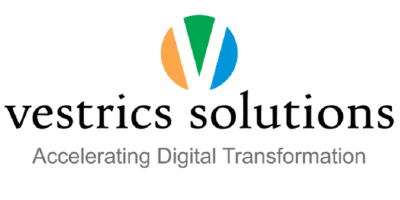Life Sciences
improve patient outcomes while managing tight margins.
Transforming life sciences through digital technology
medical device fabrication, relies heavily on digital technology.
AI and new life sciences advancements
Regulations concerning pharmaceuticals and medical devices
Cell and gene therapies aimed at specific conditions
Maintaining a green approach in the pharmaceutical industry
Collaborations between biotechnology and pharmaceutical companies
SAP provides cutting-edge solutions for the
life sciences industry
cost-efficient transformation and long-term expansion can be accomplished.
SAP S/4 HANA Cloud
SAP's solution for tracking and tracing pharmaceuticals at an advanced level
SAP's Procurement Network
SAP's Intelligent Clinical Supply Management Solution
SAP Life Sciences Batch Release Hub
SAP Data Exchange Center
➜ Data Inaccuracies: An ERP system makes managing and sharing up-to-date information across the entire organization more manageable. This can lead to errors and incorrect assumptions being made, which can significantly impact the long-term success of an organization.
➜ Poor Inventory Controls: Without an ERP system, there is an increased risk that companies in the Life Sciences industry will not have accurate and reliable tracking of their inventory levels. This can result in overworked personnel and shortages of essential items.
➜ Timely Decision Making: Decisions can be slow and inefficient without an ERP system. This can cause costly delays in product launches and pricing decisions.
➜ Regulatory Compliance: Companies in the Life Sciences industry must adhere to strict regulations to remain compliant. An ERP system makes it easier for organizations to track and follow regulatory changes, leading to potential violations.
➜ Data Security: Keeping customer information secure is critical in the Life Sciences industry, especially with the introduction of electronic health records. Without an ERP system in place, organizations can be open to data breaches and security risks.
➜ Lack of Visibility: With an ERP system, it can be problematic for companies to gain visibility into their operations, resulting in efficient processes, performance shortfalls, and increased costs.
➜ Enhanced Productivity: SAP solutions offer a range of capabilities designed to help Life Sciences companies streamline their manufacturing process and increase efficiency. Automating processes like order processing, billing, and inventory management allows companies to maximize resources and reduce costs.
➜ Improved Compliance: Regulatory compliance requirements are essential for the Life Sciences sector, and SAP solutions help companies ensure compliance at every stage of the product life cycle. SAP allows Life Sciences companies proactively monitor and manage quality adherence to ensure safety and compliance.
➜ Enhanced Customer Experience: SAP solutions enable Life Sciences organizations to capture customer data accurately and leverage it to build better products and services. Using SAP, companies can provide customers with personalized experiences and create more loyal customer relationships.
➜ Effective Data Management and Analysis: SAP solutions offer many data management and analysis features that Life Sciences companies can leverage. By leveraging SAP's capabilities, companies can analyze production processes and customer patterns to make more informed decisions.
SAP offers a range of solutions designed specifically to help the Life Sciences industry to gain insights into their data. An example is the SAP Leonardo solution, a comprehensive suite of products that allows companies to easily access and analyze data, enhancing the ability to make faster and more informed decisions. Additionally, SAP also provides a Data Warehousing solution, which allows for secure data storage and the creation of high-powered analytics reports. With the Data Warehousing solution, Life Sciences companies can quickly and easily build report structures, helping identify insights and draw conclusions. Finally, SAP offers a variety of tools for Machine Learning and Artificial Intelligence to help Life Sciences companies understand and track trends. SAP's intelligent tools can help to drive insights and help the Life Sciences industry make smarter decisions.
➜ SAP's solutions can help improve manufacturing and supply chain efficiency – from raw materials planning to product fulfillment – leveraging the latest Industry 4.0 technologies to create more agile and automated processes.
➜ The intelligent insights that SAP can provide helps life sciences companies develop and implement strategies that drive innovation initiatives, uncover new opportunities, and create higher value for customers.
➜ SAP can provide customized systems designed to support the unique requirements of life sciences organizations. This includes solutions for managing customer data, tracking and tracing, production planning, quality control, and regulatory compliance.
➜ SAP's digital marketing solutions can help Life Sciences companies better target and engage with their customers efficiently and cost-effectively. It also helps organizations build customer relationships, defining a clear roadmap for success and delivering actionable insights through data analysis.
➜ Using SAP's analytics and AI technologies, life sciences companies can gain real-time visibility into their operations and use predictive analytics to forecast performance better and identify optimization areas.
SAP can help companies in the Life Sciences industry with their digital transformation journey by providing them with valuable solutions such as:
➜ SAP Cloud Platform– to rapidly integrate advanced analytics for everyday operations. This platform accelerates time-to-market for new services, increasing customer satisfaction and enhancing operational efficiency.
➜ SAP HANA – to provide companies with the speed and capacity to process and analyze complex data in real-time rapidly. This technology helps them to gain unprecedented insights into customer interactions, product performance, and quality assessment to keep up with accelerating clinical trial needs.
➜ SAP Manufacturing Execution Systems (MES) – to help Life Science organizations simplify manufacturing processes and increase production flexibility. This real-time system provides deep visibility into operations and assets so that companies can make better-informed decisions.
➜ SAP Advanced Track and Trace– to enable better compliance and traceability. This solution provides companies with tools and capabilities to meet the latest regulatory standards and strengthen consumer safety successfully.
➜ SAP Digital Procurement Solutions – to quickly connect, source, select, and manage partner vendors and suppliers. This solution streamlines procurement processes and eliminates costly manual errors.



